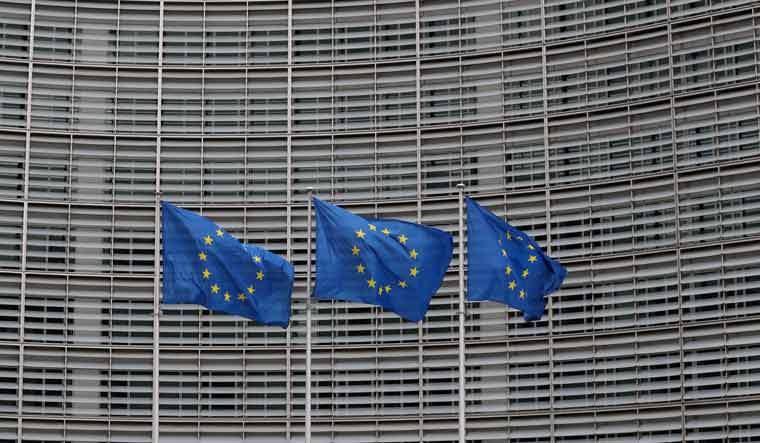The European Union imposed Monday sanctions on four Chinese officials accused of responsibility for abuses against Uyghur Muslims, part of a raft of measures targeting alleged human rights offenders around the world and provoking retaliation from Beijing.
The four are senior officials in the northwest region of Xinjiang.
The sanctions involve a freeze on the officials' assets and a ban on them travelling in the bloc. European citizens and companies are not permitted to provide them with financial assistance.
China at first denied the existence of camps for detaining Uyghurs in Xinjiang but has since described them as centers to provide job training and to reeducate those exposed to radical jihadi thinking. Officials deny all charges of human rights abuses there.
Xinjiang had been a hotbed of anti-government violence, but Beijing claims its massive security crackdown brought peace in recent years.
China's Foreign Ministry responded immediately, denouncing the sanctions as based on nothing but lies and disinformation and issuing its own retaliatory measures.
The ministry announced sanctions against 10 individuals and four institutions that it said had damaged China's interests and maliciously spread lies and disinformation. They and their family members would be barred from entering mainland China, Hong Kong or Macao and cut off from financial dealings with those areas, the ministry said.
Among those targeted was Adrian Zenz, a U.S.-based German scholar who has publicized abuses against minority groups in China's western regions of Tibet and Xinjiang. China has said companies and individuals have petitioned to sue Zenz, but it wasn't clear who the plaintiffs were or how they would pursue legal action across borders.
Others targeted for sanctions include five members of the European Parliament: Reinhard Butikofer, Michael Gahler, Raphael Glucksmann, Ilhan Kyuchyuk and Miriam Lexmann.
The ministry did not say what specific measures would be taken against the organisations. They were listed as the Political and Security Committee of the Council of the European Union, where the 27 national envoys decide foreign and security policy; the European Parliament's Subcommittee on Human Rights; the German-based Mercator Institute for China Studies; and the Alliance of Democracies Foundation in Denmark.
Last week, China's ambassador to the EU, Zhang Ming, had warned that Beijing would retaliate.
We want dialogue, not confrontation. We ask the EU side to think twice. If some insist on confrontation, we will not back down, as we have no options other than fulfilling our responsibilities to the people in our country, he said.
The new EU sanction system is similar to the Magnitsky Act Obama-era legislation that authorizes the U.S. government to sanction those it sees as human rights offenders, freeze their assets and ban them from entering the United States.
EU foreign ministers, as part of Monday's move, also imposed sanctions over repression in North Korea, extrajudicial killings and enforced disappearances in Libya, torture and repression against LGBTI people and political opponents in Chechnya in Russia, and torture, extrajudicial, summary or arbitrary executions and killings in South Sudan and Eritrea," a statement said.





